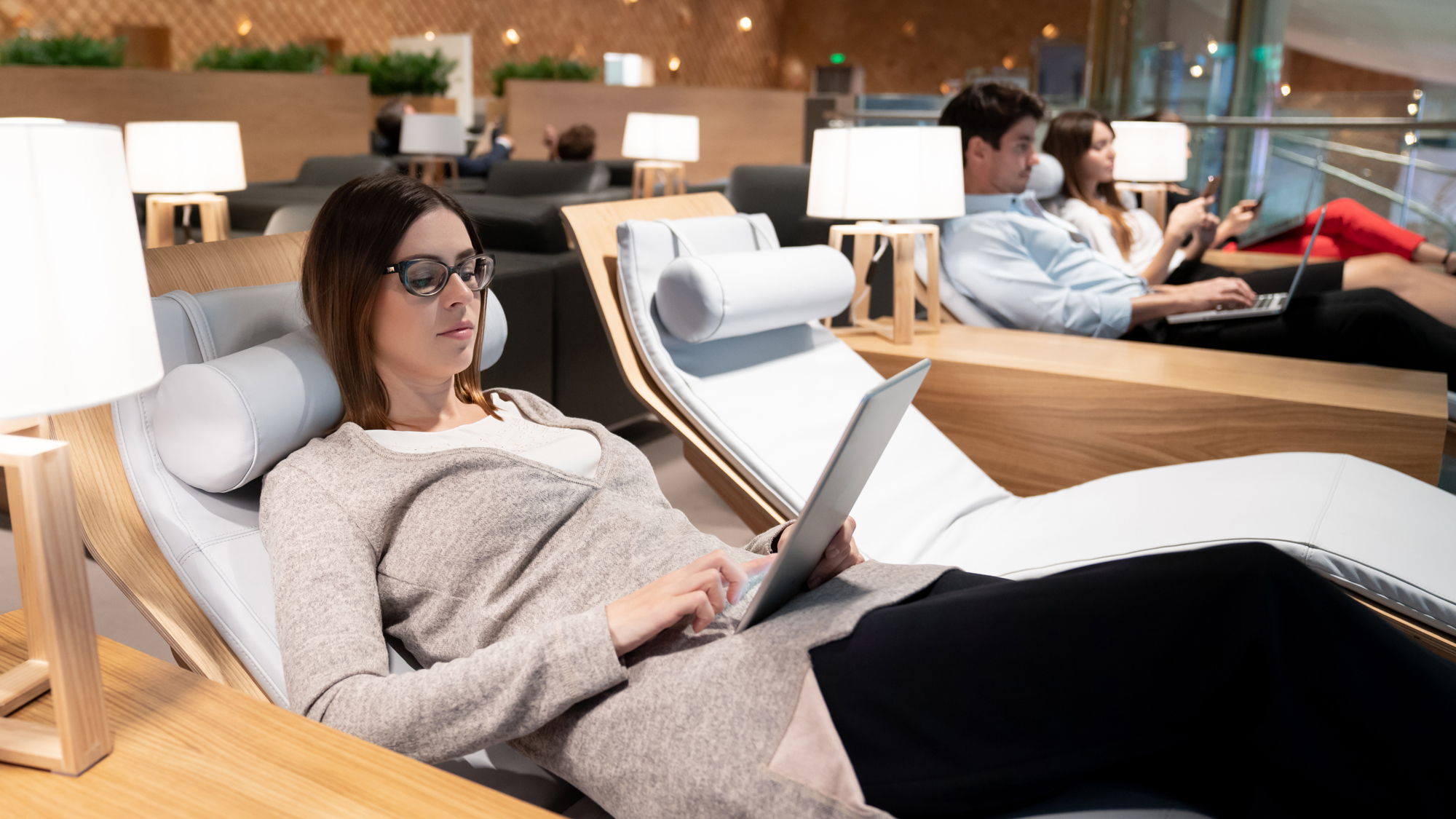HENRYs Love Their Air Miles
Kick your frequent flier addiction during lockdown.

Image andresr
Lynn Johnson
9 May, 2020
Older siblings of the School Strike For Climate generation are driving up carbon emissions, as they pay for their purchases with rewards cards to add to their air miles. If you want to help tackle the climate crisis, it’s time to cancel your frequent flier program and cut up your linked credit card.
It seems an odd time to be writing an article about frequent flier reward schemes when the world is in lockdown, airlines are going into administration, their share prices plummeting and customers’ access to some frequent flier programs are being frozen. But now may be the best time to speak to high earners about changing their flying habits because lockdown means they have more time for reflection.
HENRY (High Earners Not Rich Yet) are a primary target group for the world’s luxury brands. While they are not yet the highest spenders on luxury goods, they are seen as a priority, given their future potential. As the luxury industry is capturing as much data as possible on HENRYs, one conclusion companies have come to is sustainability is KEY to winning the younger consumer’s heart. But is this true?
HENRYs apparently prefer using credit and debit cards with rewards because they love racking up their air miles! Of all the age groups, the biggest spending HENRYs are Millennials (age 24-39). The average spend of a Millennial HENRY household is US$86K. Whilst Baby Boomers and Gen X tend to get the blame for driving up carbon emissions, people of all generations are ignoring the consequences of their excessive consumption patterns. This self-serving approach is a huge relief to the companies who want to sell you more unnecessary stuff!
Worldwide there are growing rumblings that air mile rewards systems should be axed so as not to encourage travellers to fly more than needed. The design of these schemes means that frequent fliers will take extra (unnecessary) flights to maintain their privileged flier status. Starting in Sweden but spreading worldwide, organisations such as We Stay on The Ground are encouraging travellers (both business and private) to build in Flight Free periods into the lifestyles.
While we are forced to keep our feet on the ground, HowToSpendItEthically.Org approached Flight Free Australia for their tips on how to break the addiction to air travel, so as not to succumb to the pressure to start flying again once the lockdown is lifted.
A key recommendation of Flight Free Australia is to fully explore your home country and continent. It’s true, just how many corners of your country and continent have you explored? “You can go a long way by bike, car and train (and by boat to outlining islands) before you have to step on to a plane.”, said Helen of Flight Free Australia, “Be it nature, history, culture, or architecture there is something for everyone.”
The key message is to go deep, not fly far and immerse yourself in whatever you choose to do, rather than do it superficially. Detox yourself from a tick box exercise of international destinations and Instagram-able locations.
Another recommendation of Flight Free Australia is set yourself a challenge, have a goal of traveling 5,000km by car or train, before you book your overseas flight. Even if you decide to camp, it doesn’t mean you have to give up all your little luxuries, given the continuously evolving world of glamping.
What are some of the specific actions you can take to deepen your experience and help you steer away from shopping and flying unnecessarily? For those who love to travel into nature, Donalea Patman, Founder of conservation organisation For the Love of Wildlife recommends some simple steps to deepen your connection and respect for the natural world. 5 things you can do to begin with:

Image AleksandarNakic
- Walk barefoot (on the grass) slowly.
- Lie down and look up, then close your eyes and feel your body on the ground.
- Sit in the same place in your garden, park, balcony, nature reserve…be still, quiet, watch, listen for 10 mins, half hour or an hour for a week, month or year.
- Expand your peripheral vision – hold out your arms and wriggle your fingers and see how wide you can see. Train yourself to see more by softly gazing at a place in front of you, cast your attention (not your eyes) on what is left and right, up and down. In time you’ll notice the tiniest movement and as your vision becomes razor sharp and your peripheral vision increases.
- Expand your capacity to listen by training your ears to hear further than your immediate surroundings. To begin, cup your hands behind your ears – listen, then turn them backward – listen, then one forward, one backward – Notice what you hear.
“What I love about this type of practise is it changes the way you enter nature” Donalea said “Wildlife stops noticing you as a threatening human. I happily exist with echidnas, wallabies, wombats, and numerous birds in my garden…who will show up for you?”
I leave the last word to Flight Free Australia “Just 6% of us take more than 40% of holiday flights. A first step toward cutting your emissions is to cut up your frequent flyer rewards card today.” The world is coming around to the axing of frequent flier rewards schemes being long overdue.

Subscribe To



